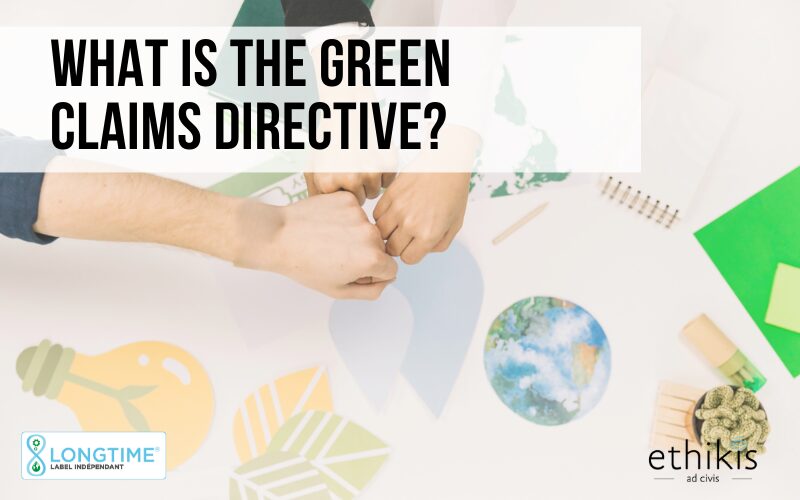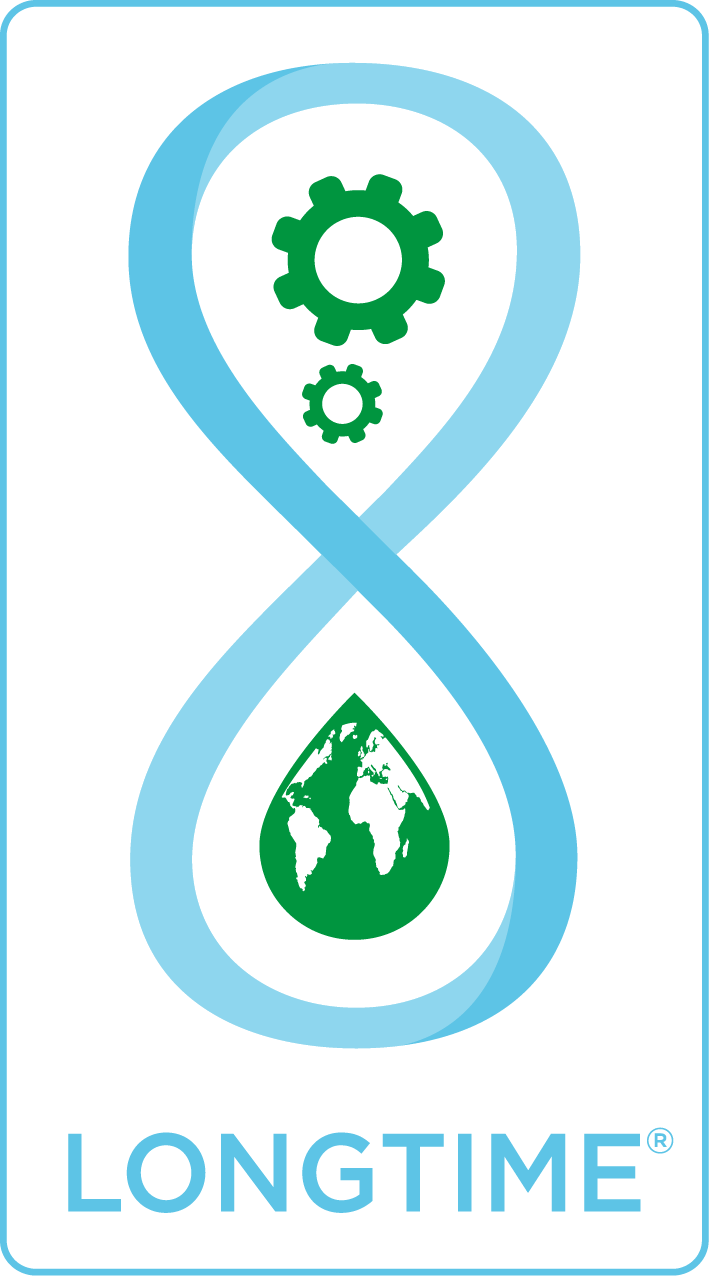
Green Claims is a new European directive designed to regulate the use of environmental claims and thus combat greenwashing practices. It aims to provide specific rules for the justification and communication of environmental claims made by companies in the European Union (EU).
This new law lays the foundations at European market level for reliable and verifiable environmental declarations to consumers, and for fair and ethical communication practices.
What’s the background to Green Claims?
Each IPCC report on the climate reminds us of the urgency of the ecological transition and the need to make sustainable development policies a priority at both European and global level.
Since the adoption of the Green Deal for Europe, a series of regulations and directives have been introduced within the EU to support and consolidate sustainable development, and to encourage every professional and consumer to produce and consume better.
More than just recommendations, these texts lay the foundations for a more global economic policy concerning the rational use of resources and the preservation of the climate.
The proposed directive complements the amendments to the Unfair Commercial Practices Directive, and is in line with the EU’s commitment to the European Green Pact, the Circular Economy Action Plan and the new Consumer Agenda.
The completion of the EU legislative framework for more sustainable consumption will contribute to achieving Sustainable Development Goal 12.6, which encourages companies to adopt sustainable practices and integrate sustainability information into their reporting. This will also have a positive impact on global value chains involving more responsible production processes in third countries, encouraging companies to contribute to the ecological transition.
This new directive package ushers in a profound paradigm shift to ensure that every environmental claim is substantiated, detailed and covered by robust, scientific evidence. There’s going to be a clean sweep of claims in product advertising and everywhere else, and that’s no bad thing!
What does the Green Claims Directive contain?
Consumers face barriers to making more sustainable consumption decisions, and report a lack of confidence in the credibility of environmental claims, not least because of the proliferation of deceptive marketing practices linked to the environmental sustainability of products.
Despite the ban on the practice, a 2020 study makes a definite statement about greenwashing by environmental markings. More than half the time, claims provide vague, misleading or unsubstantiated information about the product or service, duping the consumer.
The directive deploys a series of articles designed to curb the proliferation of unsubstantiated environmental claims.
The Green Claims articles are broadly based on two types of requirements:
- Scientific substantiation of claims
- Requirement for communication and transparency of claims
A service or product making a claim directly related to climate or carbon emissions in its advertising or communications must be particularly vigilant about the robustness of its methodology, and provide transparent, reliable and accessible information.
What is an environmental claim?
An “environmental claim” is a non-binding marketing message that claims or suggests that a product, service or professional has a positive or zero impact on the environment and/or is less harmful to the environment than other products, services or professionals. Regularly used by companies, this claim can take many forms, such as a text, an image in advertising, a graphic representation, a symbol, a label…
Here are a few examples of environmental claims:
- ecological
- recyclable
- 0 carbon 2030
- Good for the environment
- In transition
- Eco Friendly
- Durable
- Responsible cosmetics
In this sense, the directive goes much further than the current prohibition under the Consumer Code, and aims to provide real consumer protection against misleading or even deceptive claims regularly made in advertising or on the web.
How are environmental claims governed by Green Claims?
Article 3 of the directive provides the most precise framework for the use of ecological claims. In particular, the EU requires professionals to justify and substantiate each environmental claim.
In summary, professionals using environmental claims must :
- Specify the scope of the claim (all or part of the product or activities)
- Rely on widely recognized scientific evidence and take into account relevant international standards
- Prove that the claim is related to a major environmental impact of the product from a life-cycle perspective.
- Demonstrate that the claim takes into account all significant aspects of the life cycle in the case of environmental performance claims.
- Admit that the claim should only be made if the product/service has superior characteristics to the law
- Be precise about greenhouse gas claims
- Detail whether the improvement linked to the claim generates adverse effects or transfers on other impacts (climate change, resource consumption or circularity, water and marine resource management, pollution, biodiversity, etc.).
Pre-approval system for claims :
Prior to use, environmental claims must be verified by an accredited third-party verifier to ensure that they comply in all respects with the requirements of European law, including the Green Claims Directive.
What does Green Claims mean for labels?
Too many labels kill labels! Yes, it’s a label that tells you that, and we fully agree with the European Commission on the need for a much stricter framework for the use of labels.
The label award system :
First but not least, the law reinforces the fact that all labels must obey a third-party certification system and demonstrate a high level of transparency.
Gone are the days of self-labels, self-branding or labels with opaque award schemes.
This point had already been mentioned in the directive on unfair commercial practices in Empowering the consumer for the green transition, aimed at empowering consumers in their responsible consumption choices, and
Our Ethikis cooperative is 200% behind this measure, so that all labels respect the same code.
The creation of a label :
To combat the proliferation of eco-labels, the EU requires any new national or private eco-label to demonstrate and prove its added value. Each label will have to be accredited, a kind of marketing authorization, before it can be deployed.
Accredited verifiers in member states will check claims before they are published. They check that the information is available and meets requirements. All labels and certification systems must be verified before use.
Green Claims and aggregate rating :
The directive is strict on aggregate rating systems, and its framework stipulates that any integrated rating system must comply with European law on environmental labeling systems. Gone are initiatives such as Planet Score and Ecoscore.
Which products are covered by the Green Claims Directive?
Absolutely all products are covered by the directive adopted by the Commission, from cosmetics to automobiles to electrical and electronic equipment, since every product is likely to carry an ecological claim.
What are the penalties under the Green Claims Directive?
Under the proposed law, a series of rather heavy penalties are envisaged for companies that fail to comply with environmental communication rules. However, the penalties for using a misleading claim and/or infringing the law remain equivalent to the penalties under the usual environmental legislation:
- Fines
- confiscation of income
- Ban on public procurement and financing
EU member states will be required to carry out regular checks to monitor the application of the rules and compliance with bans.
What are the grey areas in Green Claims?
The text adopted by the European Commission contains a number of grey areas. ECOS, of which our cooperative Ethikis is a member, has identified the following areas for improvement:
- The directive delegates a great deal of work to member states
- All the verification work will require funding or will rely on private service providers, with the risk of collusion and inequality between small and large companies.
- No common method for verifiers has been defined, which creates a risk of unequal treatment if some member states are less strict about granting certificates of conformity.
- The article prohibiting ecological claims for products containing toxic substances has disappeared and may be included in a future revision.
When will the Green Claims Directive apply?
The implementation of a European directive, such as the Green Claims Directive, follows a well-defined series of stages, starting with the Commission’s proposal, followed by Parliament’s first reading.
The directive has been in proposal mode since 22/03/2023 and has been put out to open consultation with stakeholders until May 2023.
Then, at first reading, the European Parliament examines the Commission’s proposal and may decide to approve it as it stands or amend it.
On 12 March, the text was adopted at first reading by Parliament in plenary session, and this was announced at an official press conference.
The Council will adopt its own position on the basis of Parliament’s version of the text. This should happen by the end of the Belgian Presidency in June 2024.
The trialogues will begin after the European elections, most likely in autumn 2024.
If a compromise is reached, Parliament will vote a second time in plenary session. The Council will then have to formally adopt it.
The adopted directive will then be sent to the Member States, which will have a period in which to “transpose” it, i.e. incorporate it into their national legislation. This period, set by the institutions, varies from 6 months to 2 years.
Given the timeframes involved in the overall transposition process, final implementation is expected by 2026-2027.

To remember about Green Claims:
- Strict supervision of environmental claims
- An end to the proliferation of eco-labels
- Obligation to address significant environmental impacts
- Greater transparency
- Pre-approval system for use of a claim
- The publication of Green Claims provides information for the world of marketing, communication and advertising. Prohibiting the use of vague or misleading ecological claims strengthens the opportunities for consumers to consume in a more sustainable and responsible way.
- To find out more, watch the replay of our “Greenclaims” webinar with experts from ECOS, Give Actions and LONGTIME® Label.
